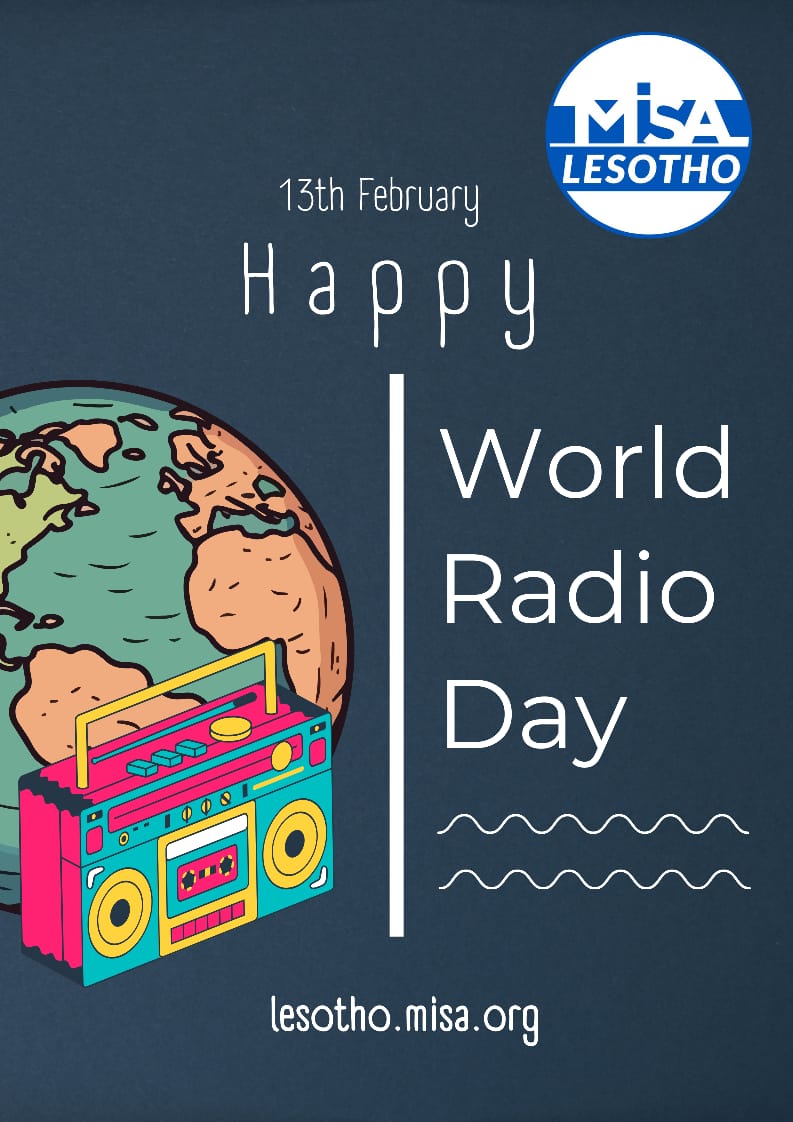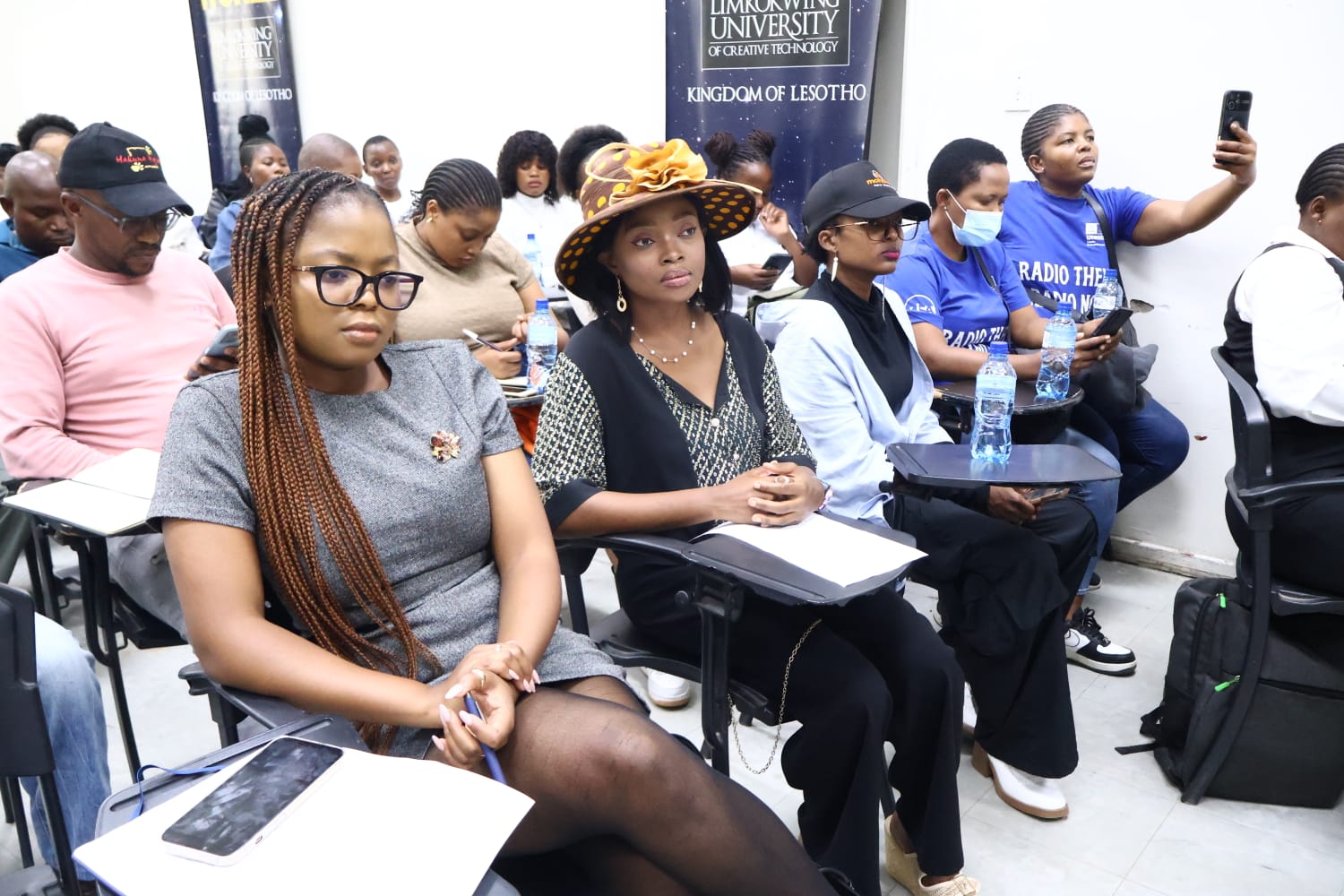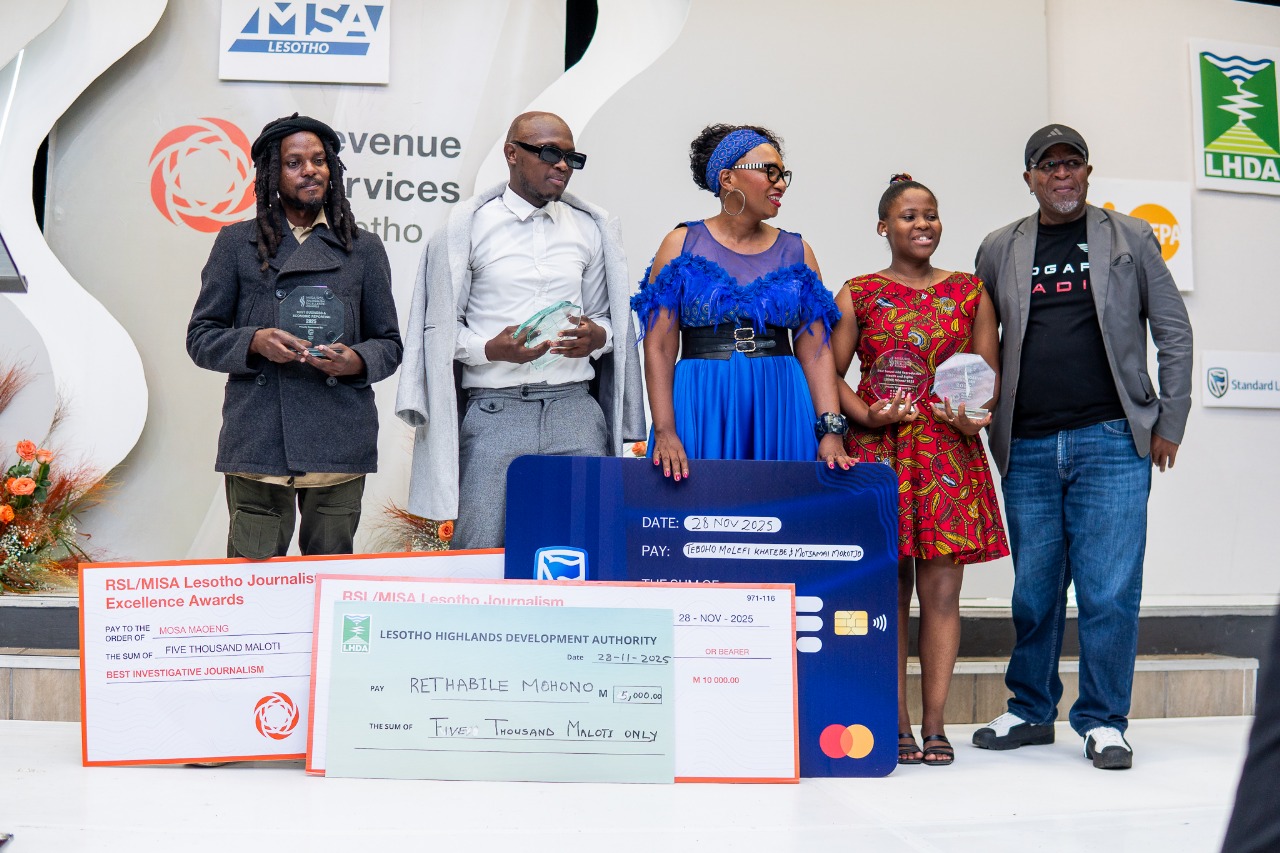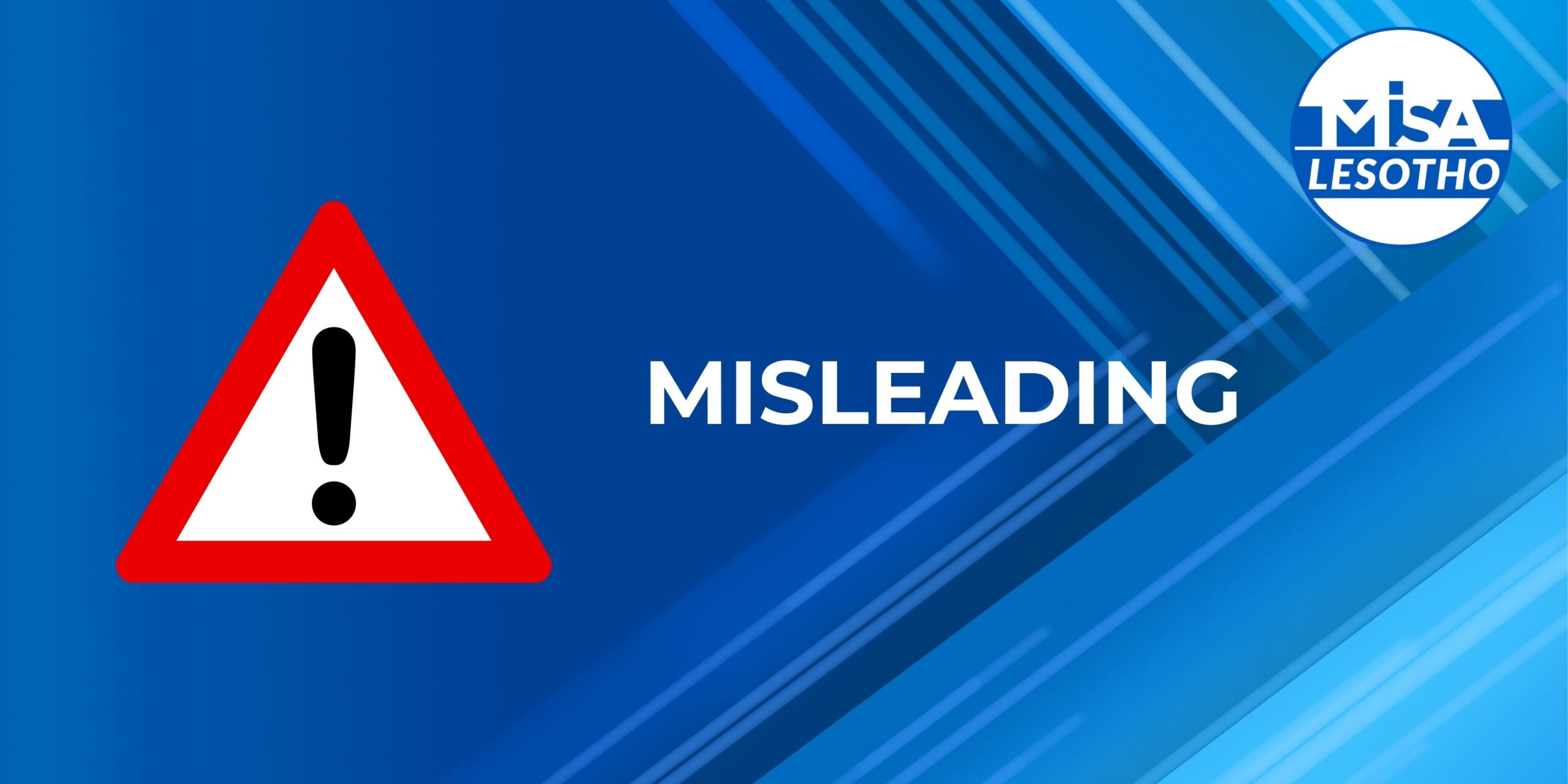The Lesotho Chapter of Media Institute of Southern Africa (MISA-Lesotho) issues this statement in commemoration of the World Radio Day 2025, celebrated today under the theme: “Radio and Climate Change”.
There is dearth of dialogue on climate change to unpack its effects on open platforms, which in turn would receive national conceptual appreciation. There are little to no national forums, seminars and conferences organized to confer on the effects of climate change so that there is buy-in from members of the public.
If these platforms were to unlock the innermost debates in Lesotho on climate change, they might trigger a coherent policy and legal framework on climate change. Though efforts have been made to engage the local media about climate change, it hardly receives enough coverage on local radio stations, newspapers and television, as well as other mainstream media platforms.
MISA Lesotho has, however, noticed regular coverage on Climate Change in some of the local media houses, one of them being thepost. There are also other positive developments regarding Climate Change coverage in the newsrooms, such Lesotho Times’ introducing the Climate and Environment Reporter in their editorial. Bokamoso 974 is also worth mentioning for their regular programming on Climate Action. The Uncesored News and Seahlolo newsrooms too, are also exceptional in their coverage about Climate and the Environment, demystifying Climate Change. The citizens, particularly at community level, have little knowledge and education about the climate change, which is often a mystified phenomenon in boardroom meetings.
Radio has the potential to dispel myths and misconceptions held on climate change by the rural communities, by constantly providing accurate and credible information. In so doing, it also undertakes civic education on the rural citizens.
Radio has been found to be at the coalface of effective reporting on climate change, especially following the Paris Agreement, which was adopted by 196 Parties at the UN Climate Change Conference (COP21). It entered
into force on 4 November 2016.
Radio has the power to facilitate public opinion and set the agenda on climate change. Radio has also been found to be capable of playing the perception shaping function on climate change. It can create spaces for unpacking the various themes on climate change.
The ability of radio to create mental images and to evoke emotions has earned it the glory to be named the ‘Theatre of the Mind’. Because it lacks visual ability, but relies on audio ability, radio complements by dramatizing situations such as storytelling for the listener to create such images in his/her mind. It allows listeners to visualize the scenes that radio sets forth for them.
MISA Lesotho, therefore, makes a clarion call to all the local radio authorities – proprietors, managers, editors, producers, anchors and reporters – to prioritise and develop regular programmes on Climate Action.









